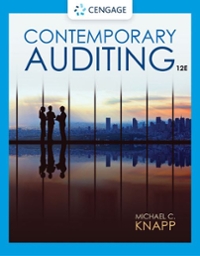Question
Alvin, a graduate student, age 26, owned a gold and silver belt that was given to his grandfather when he was welterweight champion of the
Alvin, a graduate student, age 26, owned a gold and silver belt that was given to his grandfather when he was welterweight champion of the world The belt was worth about $500, but had great sentimental value to Alvin. On the evening of October 20, Alvin, alone in his apartment, took a dose of LSD Shortly thereafter, he began to hallucinate. In this state, he experienced a feeling of oneness with the universe and determined that he should sell the belt and donate the proceeds to charity. Alvin went promptly to Bart's Pawnshop and sold the belt for $475. When the effects of the drug had worn off, Alvin realized what had happened. Bart refused to return the belt, claiming that he "bought it fair and square."
Alvin brought suit to rescind the contract for sale and to recover the belt. At the trial, Plaintiff's expert testified that LSD, like other hallucinogens, can produce a range of mental states, including hallucinations, delusions and partial amnesia. He also stated that the effects of the drug may range from a loss of time and space perception to panic, paranoid delusions and symptoms very similar to those of schizophrenia. He then concluded that at the time of the sale, Plaintiff was under the influence of the drug and "was not aware of the quality and nature of his act." On cross-examination, it was shown that Plaintiff had no mental disease or defect and that he had used LSD on previous occasions. Defendant's testimony, corroborated by another witness, was that Plaintiff entered his store, offered to sell the belt for $600 and after about ten minutes of bargaining, agreed to take $475. Defendant testified that Plaintiff acted "a little strange" but that he was lucid and bargained very well. At the close of the evidence, Defendant made a motion for a directed verdict, which the trial court granted. In an oral opinion from the bench, the judge stated that he was relying on Restatement (Second) § 16 on "intoxicated persons" and that although he believed that Plaintiff was, at the time of the sale, unable to understand in a reasonable manner the nature and consequences of the transaction, he found that Defendant had no reason to know about the lessened capacity. Also, the judge opined that Plaintiff must bear some of the responsibility since he had elected to take LSD.
Accordingly, the motion was granted, and a judgment was entered for Defendant.
On appeal, what result?
Step by Step Solution
3.48 Rating (158 Votes )
There are 3 Steps involved in it
Step: 1
I am not a legal expert but I can provide you with some general insights into the scenario youve described However its important to consult with a leg...
Get Instant Access to Expert-Tailored Solutions
See step-by-step solutions with expert insights and AI powered tools for academic success
Step: 2

Step: 3

Ace Your Homework with AI
Get the answers you need in no time with our AI-driven, step-by-step assistance
Get Started


